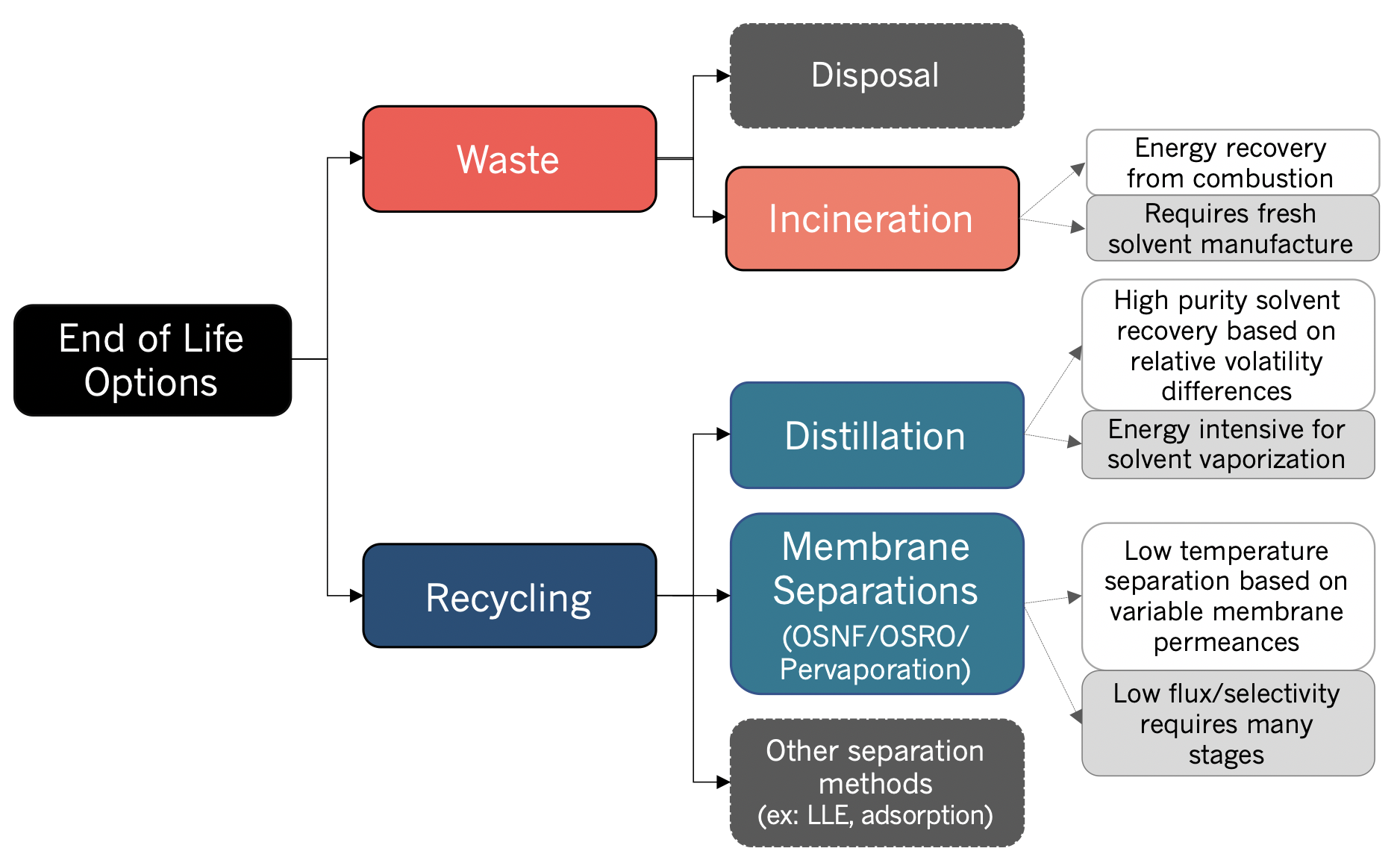Sustainable production of chemicals, materials, and fuels requires the use of renewable feedstocks and green processing. Current research focuses on the use of biomass and waste based feedstocks for the reduced impact production of biobased products and critical materials.
Biobased polymers using green solvents
 Creating polymers with biobased materials circumvents the need to rely on petroleum feedstocks and potentially allows for increase polymer performance and end-of-life properties. This collaborative project (with Dr. Melissa Gordon and Dr. Joseph Stanzione) seeks to create polyesters from birch bark materials. Our focus is the use of green solvents to enable more sustainable monomer extraction and polymerization.
Creating polymers with biobased materials circumvents the need to rely on petroleum feedstocks and potentially allows for increase polymer performance and end-of-life properties. This collaborative project (with Dr. Melissa Gordon and Dr. Joseph Stanzione) seeks to create polyesters from birch bark materials. Our focus is the use of green solvents to enable more sustainable monomer extraction and polymerization.
Switchable Solvents for Biomass Extraction
 Biomass extractions are typically difficult separations due to the complexity of the biomass matrix. Switchable solvents potentially offer a way to provide more selective extractions for biomass fractions within the context of a biorefinery. This project seeks to characterize and optimize the use of switchable hydrophilicity solvents for biomass fractionation
Biomass extractions are typically difficult separations due to the complexity of the biomass matrix. Switchable solvents potentially offer a way to provide more selective extractions for biomass fractions within the context of a biorefinery. This project seeks to characterize and optimize the use of switchable hydrophilicity solvents for biomass fractionation
Critical Metal Recovery from Landfill Leachate
This collaborative project seeks to recover critical materials from landfill leachate using an integrated leaching and separation process. Part of an NSF funded project, our lab’s goal is to work closely with our collaborative partners to better understand landfill leachate as well as the recovery processes for critical metals. We will then create technoeconomic and life cycle analyses to allow for convergent and iterative process design.
Green Solvent Selection:
Solvent production is energetically demanding, and often has adverse environmental effects. Efficiently disposing of or recycling solvent waste from chemical processes is crucial to minimize industrial energy use, however most streamlined methods for determining solvent sustainability do not consider these process considerations or type of separation method used for recycling. This projects seeks to provide recommendations for solvent end-of-life options using chemical thermophysical properties as robust yet simple metrics for determining process impacts. 
